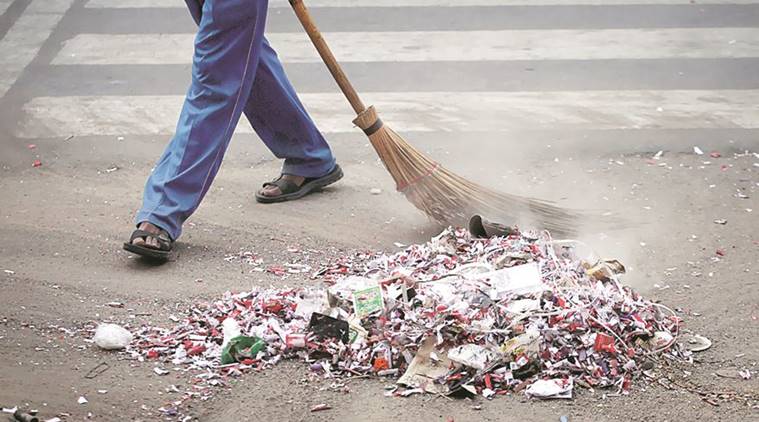- India
- International
Swachh Bharat: Urban areas require a different approach to end open defecation
The success of the Swachh Bharat Mission depends not only on changing the mindset, but, also on changing in the way waste is disposed of by the municipalities and the state governments.
 An urban area faces two major challenges — disposal of solid waste and sewerage/liquid waste.
An urban area faces two major challenges — disposal of solid waste and sewerage/liquid waste.
The Swachh Bharat Mission is being executed by two different ministries — the Ministry of Drinking Water and Sanitation for rural areas and the Ministry of Housing and Urban Affairs for urban areas. In the rural areas, the major challenge was to change the mindset of the populace so that they would start using household toilets rather than defecate in open areas. As majority of the households did not have toilets in their homes, the main component of Swachh Bharat Mission (Grameen) was to construct household latrines and to focus on information, education and communication (IEC) activities. The need for a dedicated sewerage network is less in rural areas as the toilets are connected with in-house soak pits. Domestic waste in rural areas is also managed in a much better manner as it is segregated at the household level and a majority of it is used in the fields. Thus, improving the cleanliness level in a rural area is much less complex than in an urban set up.
An urban area faces two major challenges — disposal of solid waste and sewerage/liquid waste. Disposal of solid waste has three key components. First, waste collection, then transfer of the waste, and lastly, proper disposal at the landfill site. The task of waste collection and its transfer to the landfill site requires both manpower as well as an efficient transportation system. The segregation of waste can either be at the source or at the landfill. Segregation at source is more economical. At the landfill, it is done by either using high-end segregation plants or manual conveyors.
In most urban areas, disposal of solid waste is primarily the responsibility of municipalities. However, these municipalities are not equipped with the manpower, financial resources and technology for the task. Most of them are dependent upon the state governments for resources. These municipalities do not have sufficient human resources in terms of engineers or sanitation staff to manage the waste. Landfill site management is very poor due to lack of technical know-how.
The second challenge is to manage sewerage in urban areas. Merely constructing toilets cannot solve the problem as these areas require proper sewerage network. The soak pit system that works in rural areas cannot work in urban areas due to a space crunch and increasing population density. The job of laying the sewerage network is again distributed between the state’s public health engineering department and the municipalities.
If we look at strategy adopted by the Swachh Bharat Mission (Urban), its main focus is on the construction of individual household toilets, community toilets, public urinals and IEC activities. The funds earmarked for solid waste management are minimal. Similarly, there is limited provision of funds for laying the sewerage networks. The strategy used for Swachh Bharat Mission (Grameen) will not yield results in the urban mission.

Hence, there is a need for revamping the Swachh Bharat Mission (Urban) wherein the focus is on solid waste and sewer management. The ministry must ask the state governments to assess their capabilities in waste handling. Recurring funds must be provided for collection of waste and its disposal. A window may be given to municipalities for upgrading their capabilities to augment their revenue collection. Separate funds must be given for the development of landfill sites. Best possible practices for waste collection across key cities must be studied and emulated.
Adopting a piecemeal approach for constructing toilets and litter bins will not solve the systemic issue of waste disposal in cities. Unless we are able to lift the waste from the streets systematically, cleanliness will not have any meaning. The success of the Swachh Bharat Mission depends not only on changing the mindset, but, also on changing in the way waste is disposed of by the municipalities and the state governments.
This article first appeared in the print edition on November 13, 2019 under the title ‘Swachh Bharat In The City’. The writer is secretary, planning and investment, Government of Arunachal Pradesh. Views are personal.
EXPRESS OPINION
More Explained
Apr 25: Latest News
- 01
- 02
- 03
- 04
- 05










































